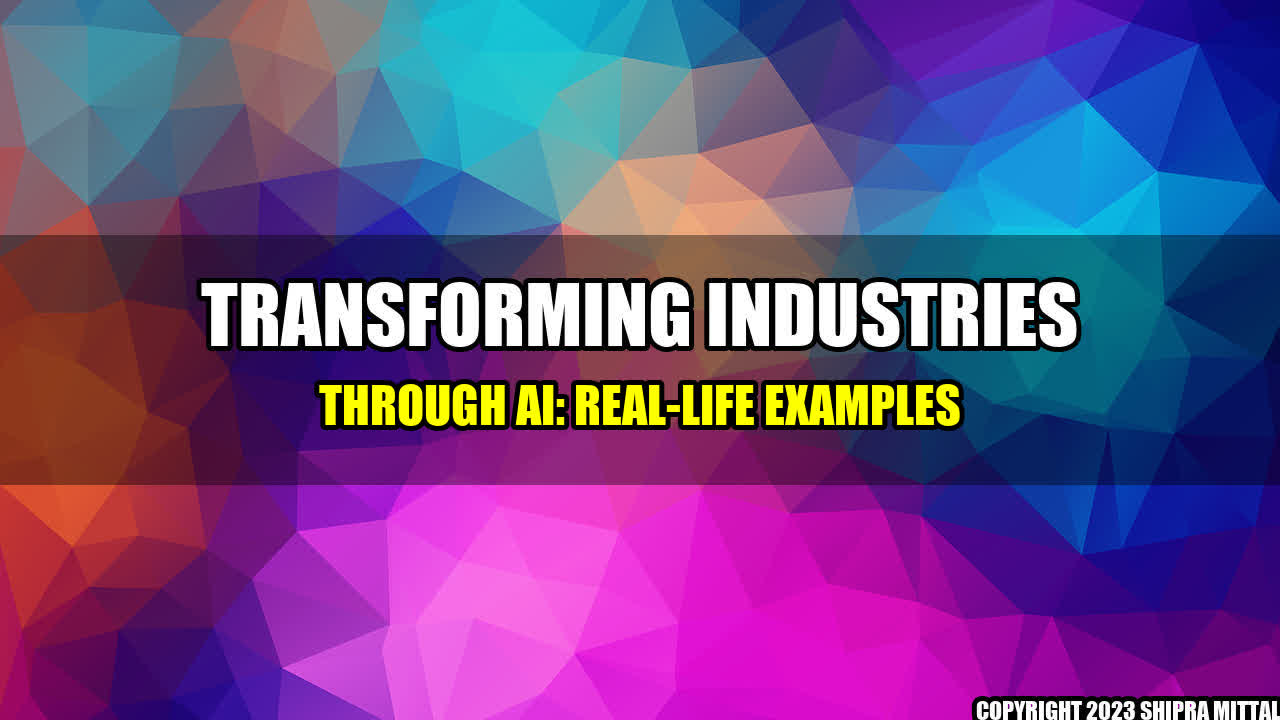Imagine a world where hospitals can predict which patients are most at risk of developing infections, factories can identify defects in products before they leave the assembly line, and insurance companies can better predict and prevent fraudulent claims. This world is becoming a reality thanks to artificial intelligence (AI), and its potential to transform industries is immense. Let's explore some real-life examples.
Healthcare
In healthcare, AI is being used to predict and prevent infections. San Francisco-based startup, Ayasdi, uses AI to identify the patients most at risk of contracting infections. Their algorithms analyze data from electronic health records and identify patterns that human doctors might miss. As a result, hospitals can take preventative measures and reduce the risk of infections.
Manufacturing
In manufacturing, AI is being used to improve quality control. German electronics company, Siemens, uses AI to detect defects in products before they leave the assembly line. Their system uses cameras and algorithms to identify imperfections that might be missed by human inspectors. As a result, Siemens can improve the quality of their products and reduce the number of defects.
Insurance
In insurance, AI is being used to improve fraud detection. American Express uses AI to analyze data from credit card transactions and identify fraudulent activity. Their system learns from patterns in the data and gets better at identifying fraud over time. As a result, American Express can prevent losses from fraud and improve the customer experience.
Conclusion
- AI has the potential to transform industries by making processes more efficient and effective.
- Real-life examples demonstrate the benefits of AI in healthcare, manufacturing, and insurance.
- As AI evolves, its impact on industries is only going to grow.

Akash Mittal Tech Article
Share on Twitter Share on LinkedIn